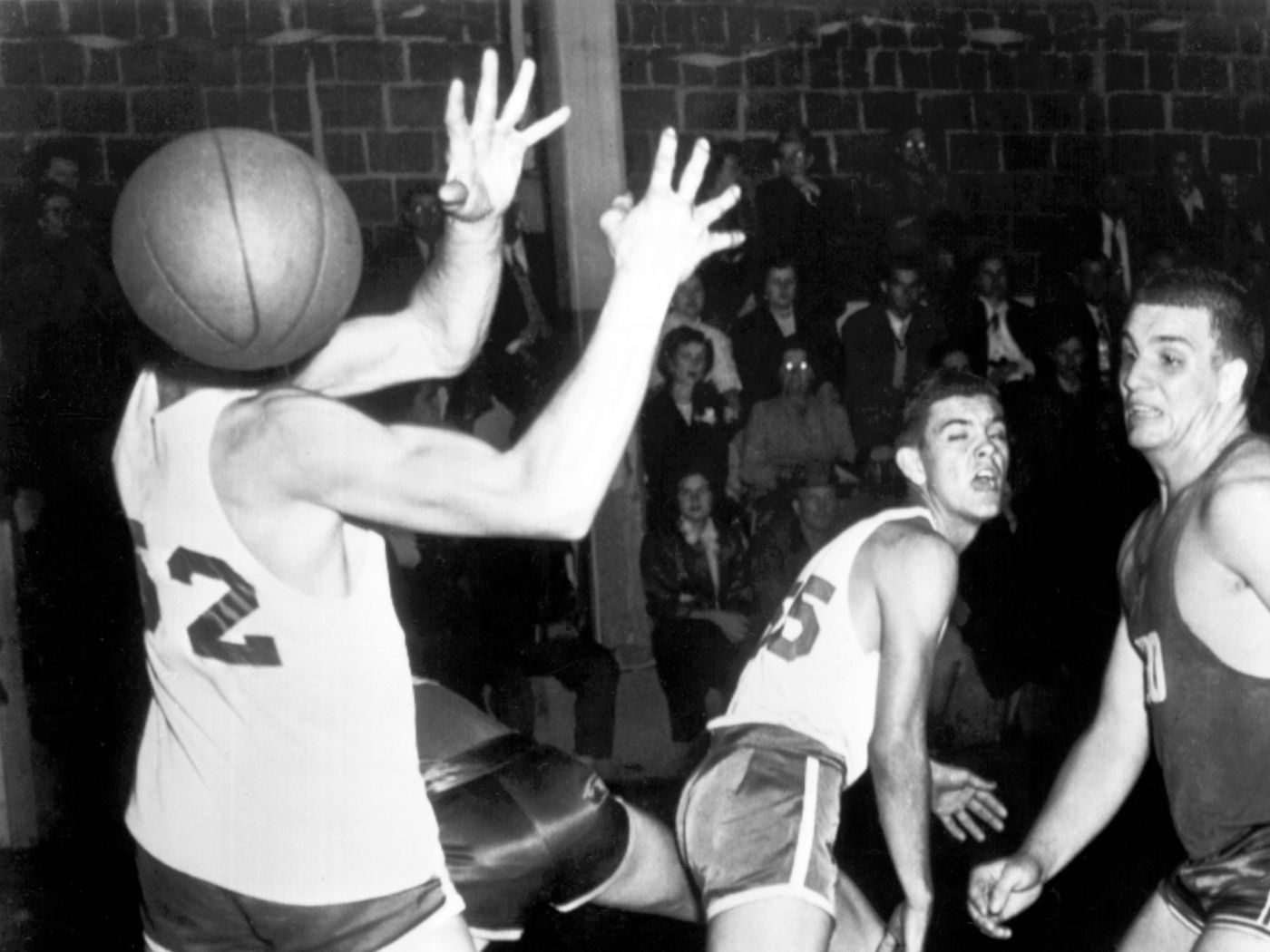Can You Play Sports With Asthma? Yes, You Can!
Yes, individuals with asthma can play sports with appropriate precautions and management of their condition. Asthma is a chronic respiratory condition characterized by inflammation and narrowing of the airways, leading to symptoms such as wheezing, coughing, and shortness of breath.
However, this should not deter individuals from participating in sports. With proper medication management, regular physical activity can actually improve lung function and overall fitness. It is important for individuals with asthma to work with their healthcare provider to develop an asthma action plan and incorporate measures such as warming up prior to physical activity, avoiding triggers, and carrying a rescue inhaler during exercise.
By taking the right steps, individuals with asthma can safely enjoy sports and physical activity.
/cdn.vox-cdn.com/uploads/chorus_asset/file/24564616/John_Boelts_showing_me_soil_moisture_in_farm_of_harper_s_melon.jpg)
Credit: www.vox.com
Understanding Asthma
What Is Asthma?
Asthma is a chronic lung disease that affects the airways, leading to difficulty in breathing. People with asthma experience recurring episodes of wheezing, chest tightness, and shortness of breath due to inflammation and narrowing of the air passages. It is a common medical condition, affecting millions of people worldwide, and can be managed with proper treatment.
Causes Of Asthma
The exact cause of asthma is unknown, but several factors may trigger and worsen symptoms. These include:
- Genetics: A family history of asthma increases the risk of developing the condition.
- Environmental factors: Exposure to pollutants, allergens, and irritants such as smoke, dust, and chemicals can trigger asthma symptoms.
- Respiratory infections: Cold, flu and other respiratory infections can exacerbate asthma symptoms.
- Physical activity: Exercise can induce asthma symptoms.
- Stress: Emotional stress can trigger and worsen symptoms.
Common Symptoms Of Asthma
The symptoms of asthma vary from person to person and can range from mild to severe. They include:
- Wheezing: A whistling or hissing sound when breathing out due to the narrowing of the airways.
- Chest tightness: Feeling of pressure or discomfort in the chest.
- Shortness of breath: Difficulty in breathing leading to a feeling of breathlessness.
- Coughing: A persistent cough, especially at night or early morning.
How To Diagnose Asthma
Asthma is diagnosed through a series of tests, including:
- Spirometry: A lung function test that measures your breathing capacity.
- Peak flow measurement: A test that measures how much air you can exhale in one breath.
- Allergy testing: A test to identify any allergens that may trigger asthma symptoms.
If you are experiencing asthma symptoms or suspect that you have asthma, consult your healthcare provider for proper diagnosis and treatment.
Remember, asthma should not stop you from playing sports or living an active lifestyle. With proper care and management, you can stay healthy, and active, and pursue your interests.
Playing Sports With Asthma
Having asthma can make it difficult to participate in sports. However, it is not impossible. In fact, playing sports with asthma can have many benefits, such as improved overall health and better management of asthma symptoms. In this section, we will discuss the benefits, challenges, and tips for playing sports with asthma.

The Benefits Of Playing Sports With Asthma
Playing sports with asthma can have numerous benefits. Here are some of them:
- Improved cardiorespiratory fitness: Regular exercise can help improve lung function and enhance the body’s ability to transport and utilize oxygen.
- Better weight management: Exercise can help manage weight and reduce the risk of obesity, which can worsen asthma symptoms.
- Stronger immune system: Exercise can stimulate the immune system, making it stronger and more responsive to infections.
- Better mental health: Exercise releases endorphins, which can help reduce stress and anxiety, and improve mood and self-esteem.
The Challenges Of Playing Sports With Asthma
Playing sports with asthma can also pose some challenges. Here are some of them:
- Shortness of breath: During exercise, the body requires more oxygen, which can be a challenge for people with asthma.
- Wheezing: People with asthma may experience wheezing, especially during high-intensity activities.
- Coughing: Exercise can trigger coughing, which is a common symptom of asthma.
- Fatigue: Asthma can cause fatigue, which can make it challenging to participate in sports for an extended period.
Tips For Playing Sports With Asthma
Despite the challenges, playing sports with asthma is possible. Here are some tips that can help:
- Consult with a doctor: Before starting any sports activity, it is essential to consult with a medical professional to determine the right level of activity and the type of sports suitable for the individual.
- Warm-up and cool-down: Warming up before exercise and cooling down afterward can help reduce the risk of asthma symptoms and injury.
- Use quick-relief medication: People with asthma should carry their quick-relief inhalers while playing sports to control symptoms.
- Choose low-intensity activities: Low-intensity activities such as walking, swimming, and cycling can be beneficial for people with asthma. Avoid high-intensity activities or those that require long periods of exertion.
- Monitor symptoms: It is essential to monitor symptoms during exercise and to stop immediately if they get worse.
- Choose the right time and location: People with asthma should try to avoid exercising in cold, dry, or polluted environments. Also, it is better to exercise in the morning or evening when pollen counts are lower.
Playing sports with asthma is possible. It can have many benefits, including improved overall health, better asthma symptom management, and increased self-esteem. By following these tips and consulting with a doctor, people with asthma can enjoy sports activities while minimizing the risks of asthma symptoms.
Best Sports For Asthma Sufferers
Can You Play Sports With Asthma? Yes, You Can!
Asthma is a chronic respiratory disease that affects the airways in your lungs, causing them to narrow and make breathing difficult. However, it does not mean that asthmatics should give up their athletic dreams. In this post, we will talk about the best sports for asthma sufferers, which can help them participate in physical activities without triggering an asthma attack.
Low-Impact Sports That Are Ideal For Those With Asthma
Low-impact sports are great for people with asthma as they do not put intense pressure on the lungs. Some of the best low-impact sports for asthmatics are:
- Swimming: The humid environment of a swimming pool helps asthmatics breathe better. Swimming also strengthens your lungs and helps improve your breathing.
- Yoga: Yoga is not only a low-impact sport but also promotes relaxation and reduces stress, which is beneficial for asthma sufferers.
- Cycling: Cycling lets you exercise your entire body without overly straining your lungs. It also enhances lung capacity and helps regulate breathing.
High-Impact Sports That Can Still Be Played With Asthma
High-impact sports may be challenging for people with asthma, but not impossible. The following sports can also be played with asthma if proper precautions are taken:
- Running: Running is one of the simplest and most effective exercises for asthmatics, but it is important to warm up before running and take necessary precautions.
- Soccer: Soccer involves continuous running and sudden bursts of speed, which may trigger asthma attacks. However, taking medications before playing and being cautious can prevent asthma attacks.
- Tennis: Tennis is a great aerobic sport but can trigger asthma attacks due to high-intensity movements. However, regular medication and proper warm-up can minimize the risk of asthma attacks.
Asthma does not have to limit your sports choices. Whether it’s a low-impact or high-impact sport, taking the necessary precautions, medications, and warm-up routines can help you stay active and lead a healthy life.
Managing Asthma During Competitive Sports
Playing competitive sports can be challenging, even more so if you have asthma. While asthma can make it harder to exercise, the good news is that it doesn’t have to keep you from participating in sports. By properly managing your asthma, you can enjoy the benefits of physical activity without compromising your health.
We’ll cover some tips on managing asthma during sports and developing a plan that allows you to compete safely and effectively.
Importance Of Communication With Teammates And Coaches
When you have asthma, communication with your teammates and coach is crucial. Make sure they are aware of your condition and how it may affect your performance on the field. Don’t be afraid to speak up if you’re feeling short of breath or if you’re experiencing any other asthma symptoms.
Letting your team know how you’re feeling can help prevent misunderstandings and ensure that you receive the support you need.
Understanding The Role Of Asthma Medication During Sports
If you use asthma medication, it’s important to understand how and when to take it during sports. Generally, it’s recommended to use a quick-relief inhaler 15 to 30 minutes before starting any physical activity. This will help open up your airways and make it easier to breathe.
Additionally, long-term control medications should be taken as prescribed, even on days when you’re not playing sports. If you’re unsure about how to use your medication during sports, speak with your doctor or a medical professional.
Developing An Asthma Action Plan For Sports Participation
Having an asthma action plan is essential to managing your condition during sports. An action plan is a written document that outlines what to do if you experience asthma symptoms. It should include information on your medications, triggers, and emergency contacts.
You should also include steps to take if you experience symptoms during a game or practice. If you’re not sure how to create an asthma action plan, speak with your doctor or a medical professional.
By following these tips and developing an asthma action plan, you can safely participate in competitive sports while effectively managing your asthma symptoms. Remember, with proper management, asthma doesn’t have to keep you from being active and enjoying the benefits of physical activity.
Frequently Asked Questions On Can You Play Sports With Asthma
Is It Safe To Play Sports With Asthma?
Yes, it is safe to play sports with asthma with proper management and precautions.
What Sports Are Best For People With Asthma?
Sports with short bursts of activity, such as tennis and swimming, are best for people with asthma.
How Can I Prevent An Asthma Attack While Playing Sports?
You can prevent asthma attacks by warming up properly, taking medication as prescribed, and avoiding triggers like cold air.
Conclusion
As someone with asthma, the idea of participating in sports or physical activities can be daunting. However, the good news is that asthma should not prevent anyone from participating in the sports they love. With proper management and care, individuals with asthma can stay active and reach their full athletic potential.
It’s important to communicate with your doctor regarding proper medication and treatment, as well as listening to your own body and responding to its signals. Additionally, taking the necessary precautions such as warming up, staying hydrated, and having quick-relief medication on hand can make all the difference.
Ultimately, with the right mindset and preparation, asthma should never hold anyone back from enjoying sports. So, go ahead and lace up those sneakers and hit the field or court, because, with asthma, you can still play and excel in sports just like anyone else.



